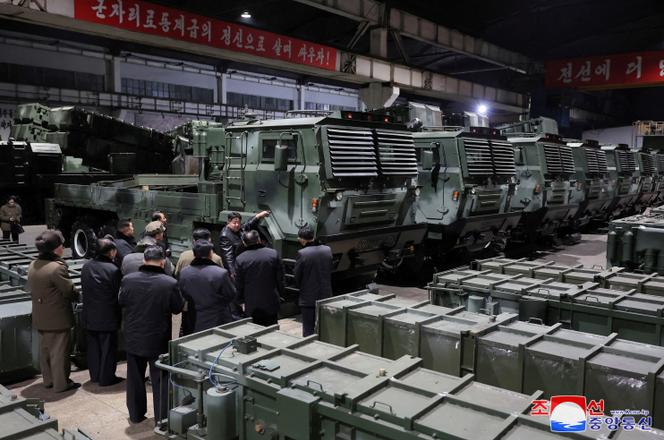


Since the beginning of the year, the salvos of live cannon rounds by North Korea from its southwest coast, close to the maritime demarcation line with South Korea in the Yellow Sea, are not just another provocation by Pyongyang. They illustrate a "decisive change" in North Korea's policy towards the South, announced on December 30, 2023, by Kim at a plenary meeting of the Central Committee of the Workers' Party of Korea.
"North-South relations are no longer relations between compatriots, but a hostile relationship between two states at war," Kim declared. In themselves, his words reflect a degree of truth: the two Koreas are still theoretically at war and hostilities have merely been suspended by the 1953 armistice. The "decisive change" referred to by the leader nonetheless represents a turning point in relations between the two countries, ending the concept of their division maintained by Pyongyang and Seoul for decades.
Since the North-South Joint Declaration of 1972, the two Koreas have presented themselves not so much as two separate states, but rather as partners with admittedly antagonistic regimes, collectively working towards a reunification that could initially take the form of a confederation (one country, two systems).
North Korean propaganda outlets have now removed all references to reconciliation with the South. The joint declaration of June 15, 2000, signed in Pyongyang by then leaders, Kim Dae-jung of South Korea and Kim Jong-il of North Korea, has disappeared from the regime's two propaganda websites, Ryomyongand and Uriminzokkiri. For several months now, Pyongyang has been referring to South Korea by its official name, Republic of Korea (Daehan Min-kuk), which was not the case before, notes North Korea expert Andrei Lankov on the NK News website.
For Pyongyang, South Korea is now treated as an enemy state, rather than as a special entity handled by separate foreign ministry departments – the United Front Department of the Workers' Party and the Committee for the Reunification of the Fatherland.
For Kim, it is a matter of distinction for the Democratic People's Republic of Korea (DPRK) not to talk to a country that is Washington's "lackey". Another consequence of this new policy is that "if the enemy opts for confrontation, we must be ready to annihilate him," he declared. In other words, argued Hong Min of the Korean Institute for National Unification in Seoul, "if South Korea has become an enemy like any other, the use of nuclear weapons becomes possible, even though they are fellow countrymen."
You have 55% of this article left to read. The rest is for subscribers only.
